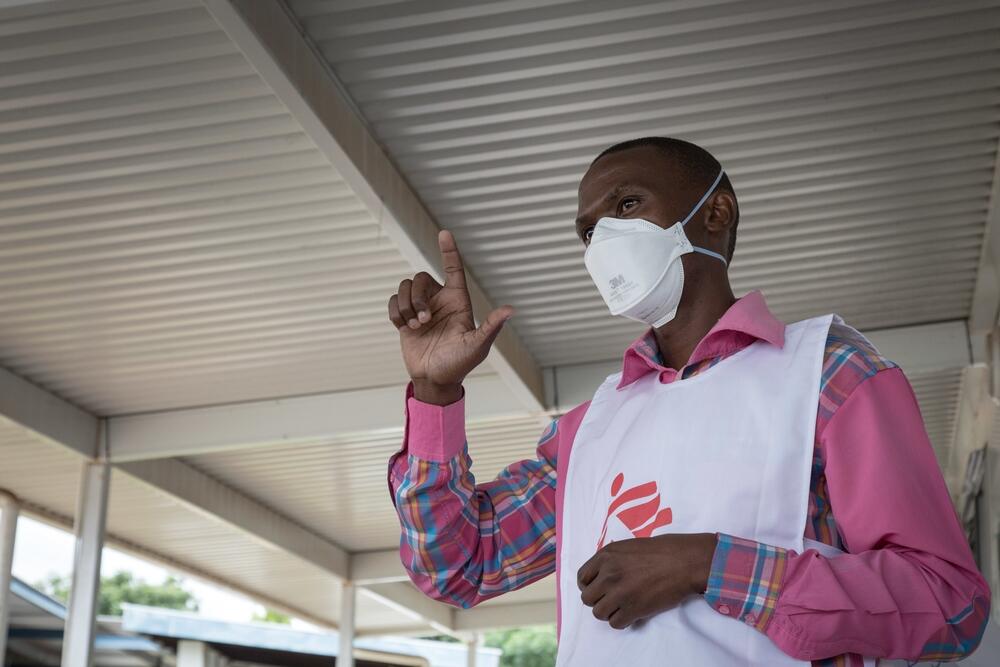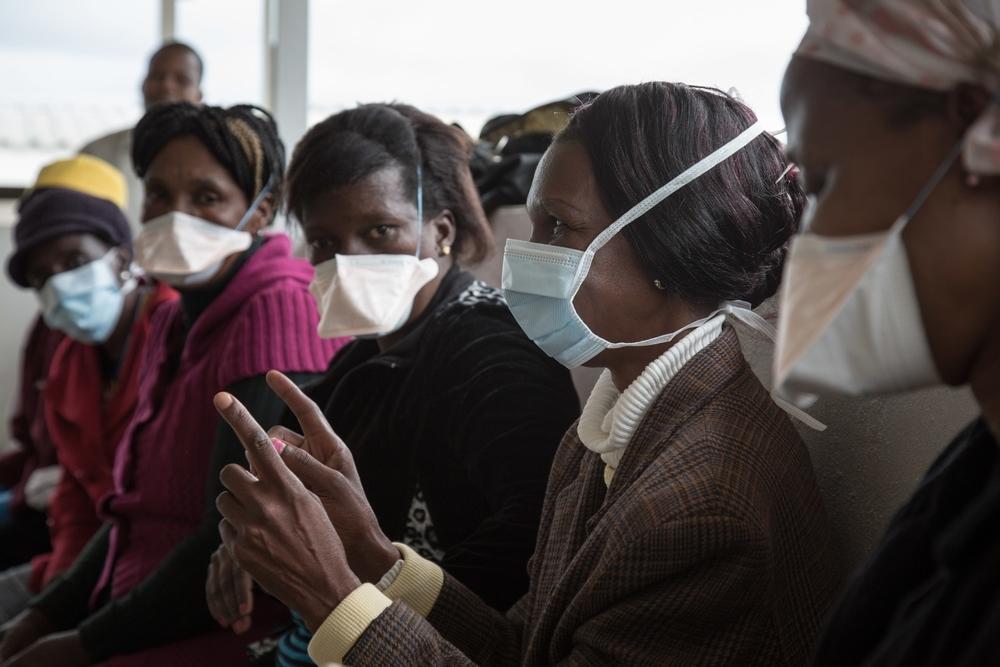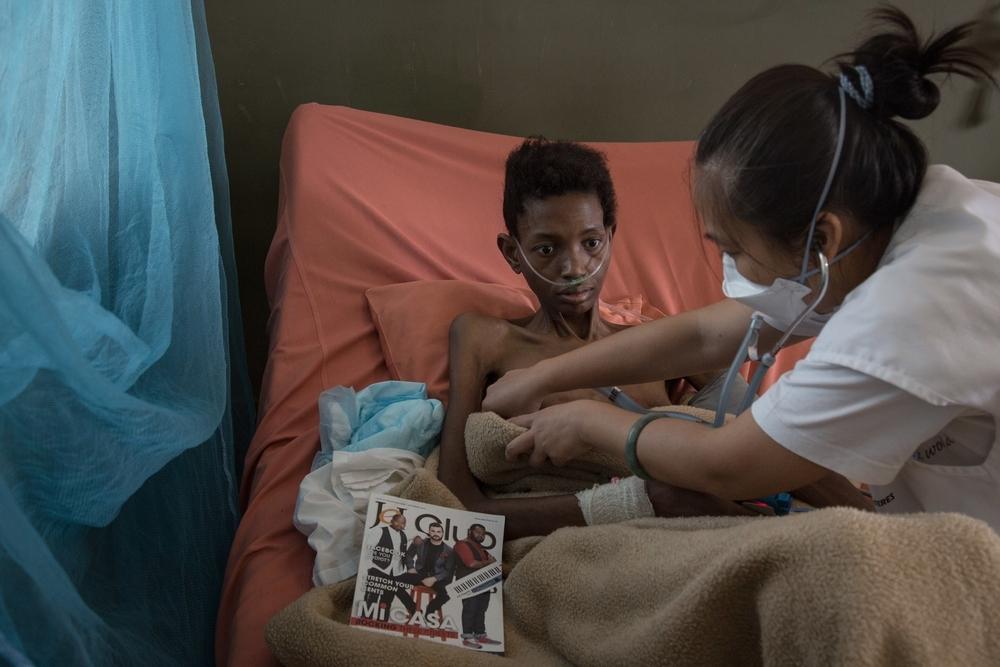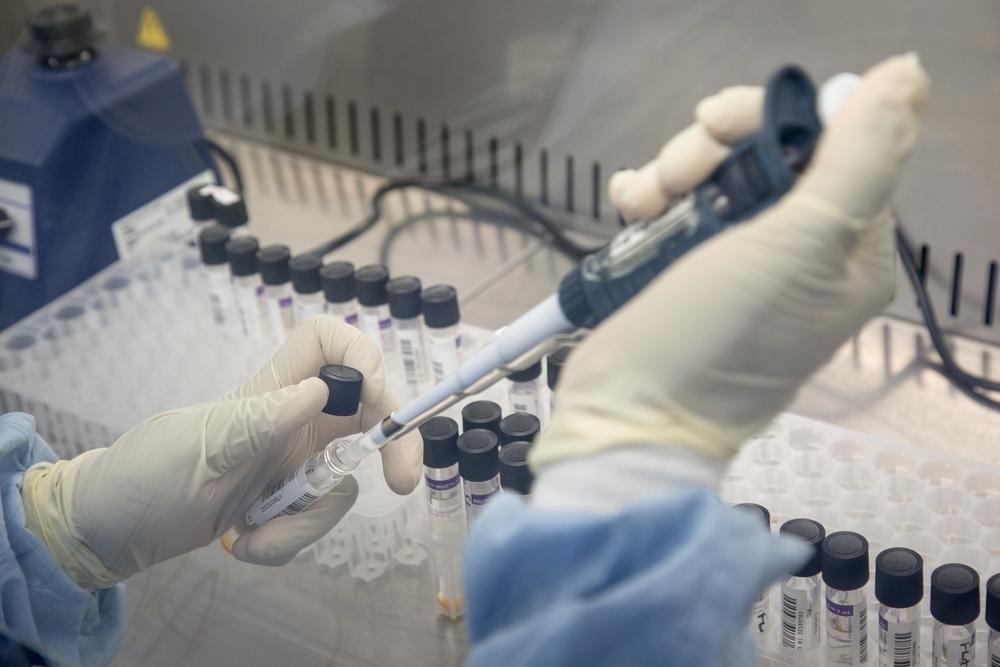Swaziland: Teaching sign language to patients made deaf by tuberculosis treatment
Six months into her tuberculosis (TB) treatment, Winile lost her hearing.
The mother from Swaziland has an advanced, drug-resistant strain of the disease (DR-TB) which is unresponsive to standard treatment.
Patients with this strain face a long, gruelling two-year journey. For the first six months they must have daily injections, and take 15 to 25 toxic tablets each day.
Then there are the side effects.
Kanamycin, a DR-TB drug, can cause liver and kidney toxicity, psychosis and deafness.
These side effects often force patients to give up their jobs. In Swaziland and other countries with high levels of poverty, this makes life for patients like Winile very difficult, unable to sustain an income or provide for their family.
In many cases, as a result of treatment, DR-TB patients become isolated from their families and communities.
Sign language
In a bid to help patients who have gone deaf or partially deaf, 30 staff with Médecins Sans Frontières/Doctors Without Borders (MSF) have trained in sign language.
They work in Matsapha, where we operate a comprehensive healthcare clinic.
"If not given proper support, DR-TB patients can suffer greatly," says Fundzile Msibi, MSF's psychosocial coordinator. "By empowering them with this new communication skill, we hope to reintegrate them into society."

Help us prepare for the next emergency
Eleven patients at the clinic, including Winile, have learned sign language alongside MSF staff, and are now using it to rebuild their lives.
"I now use sign language to communicate with my children," says Winile. "I try to teach them what I have learned and we are able to communicate.
"My children are still young and they need me.
"Being able to use sign language will help me continue to be a part of their lives."
The DR-TB struggle
Tuberculosis is one of the developing world's biggest killers.
Each year there are 9.4 million new cases, and 1.7 million deaths, 85 percent of which occur in Asia and Africa.
Swaziland has one of the highest rates of TB and multi-drug resistant TB (MDR-TB) on the planet. Here, 80 percent of people who contract the disease are already HIV positive.
For patients such as Winile, the disease is only part of the problem; it is treatment itself, which is painful, long and often traumatising that makes the journey to recovery a daunting prospect.
Tholakele is on treatment for DR-TB at the MSF-supported hospital in Moneni, central Swaziland. The 39-year-old lives 15 kilometres away, living alone while her husband works in South Africa.
For three months, she travelled by herself to and from the hospital everyday, to receive her injections.
The injections caused her severe pains, which affected her ability to walk.
Because she lived alone, and did not have anyone to help look after her, she was admitted to Moneni hospital for two months.
New treatment, new hope
With the introduction of new treatment, the suffering of DR-TB patients looks to be shorter, less toxic and more viable.
Since January 2014, we have treated 135 patients in Swaziland using a shorter nine to 12 month regimen, as opposed to the previous 24 months. Here, patients receive daily injections for the first four to seven months, followed by a course of tablets.
Alongside this, we are using first new TB medicines in over 50 years: Bedaquiline and Delamanid.
These drugs are for patients with complicated cases of DR-TB, who previously had no treatment options left.
Crucially, these medications do not incite the same extreme side effects of previous treatments, making it much more appealing to patients.
The results from Bedaquiline are already very promising: Over 90 percent of DR-TB patients treated with the drug have converted within six months. This means TB bacteria can no longer be detected in their lungs and sputum.
Not only are these new drugs providing better medical outcomes, but they are bringing hope to people who previously had none.



